
Gostenhof: Nuremberg's Bohemian Gem
Gostenhof, affectionately known as 'GoHo,' is one of Nuremberg's most vibrant and eclectic neighborhoods. Once an industrial area, it has transformed into a hub of creativity and culture, making it an unmissable destination for tourists seeking a unique experience. The area's streets are lined with colorful murals, quirky boutiques, and an array of hip cafes and bars, each offering a distinct charm that reflects the eclectic spirit of Gostenhof. History enthusiasts will find Gostenhof a treasure trove of architectural wonders, from the classic Wilhelminian-style buildings to remnants of its industrial past. The neighborhood's rich history is seamlessly blended with modern artistic expressions, making it a fascinating place to explore. You can spend hours wandering through its streets, discovering hidden gems at every corner, from independent art galleries to local artisan shops. Gostenhof's culinary scene is equally diverse and exciting. Whether you're in the mood for traditional German cuisine or international flavors, the neighborhood's wide range of restaurants and eateries will not disappoint. Be sure to visit the local markets, where you can sample fresh produce and regional delicacies, giving you a taste of Nuremberg's rich culinary heritage. As the sun sets, Gostenhof comes alive with its vibrant nightlife. The neighborhood's bars and clubs offer something for everyone, from laid-back lounges to lively music venues, ensuring your nights are as memorable as your days.
Local tips in Gostenhof
- Visit on weekends for local markets and street festivals.
- Explore side streets for hidden art galleries and murals.
- Try local German dishes at traditional eateries for an authentic experience.
- Check out live music venues for a taste of the local nightlife.
- Wear comfortable shoes as the best way to explore is on foot.
Gostenhof: Nuremberg's Bohemian Gem
Gostenhof, affectionately known as 'GoHo,' is one of Nuremberg's most vibrant and eclectic neighborhoods. Once an industrial area, it has transformed into a hub of creativity and culture, making it an unmissable destination for tourists seeking a unique experience. The area's streets are lined with colorful murals, quirky boutiques, and an array of hip cafes and bars, each offering a distinct charm that reflects the eclectic spirit of Gostenhof. History enthusiasts will find Gostenhof a treasure trove of architectural wonders, from the classic Wilhelminian-style buildings to remnants of its industrial past. The neighborhood's rich history is seamlessly blended with modern artistic expressions, making it a fascinating place to explore. You can spend hours wandering through its streets, discovering hidden gems at every corner, from independent art galleries to local artisan shops. Gostenhof's culinary scene is equally diverse and exciting. Whether you're in the mood for traditional German cuisine or international flavors, the neighborhood's wide range of restaurants and eateries will not disappoint. Be sure to visit the local markets, where you can sample fresh produce and regional delicacies, giving you a taste of Nuremberg's rich culinary heritage. As the sun sets, Gostenhof comes alive with its vibrant nightlife. The neighborhood's bars and clubs offer something for everyone, from laid-back lounges to lively music venues, ensuring your nights are as memorable as your days.
Iconic landmarks you can’t miss
Imperial Castle of Nuremberg
Explore the Imperial Castle of Nuremberg, a breathtaking medieval fortress that showcases Germany's rich history and architectural brilliance.
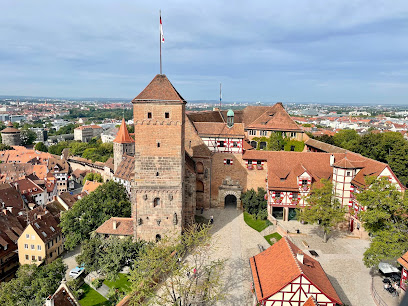
Handwerkerhof Nuremberg
Explore Handwerkerhof Nuremberg, a captivating artisan village showcasing traditional craftsmanship, unique shops, and delightful local cuisine in a historic setting.
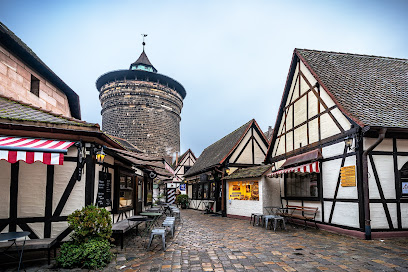
Memorium Nuremberg Trials
Explore the Memorium Nuremberg Trials, a powerful historical landmark revealing the legacy of justice and accountability in post-war Germany.
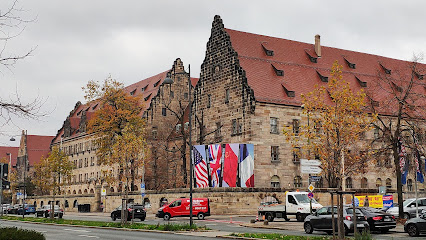
Ehekarussell
Discover the enchanting Ehekarussell fountain in Nuremberg, a stunning sculpture that celebrates love and artistry in a vibrant city setting.
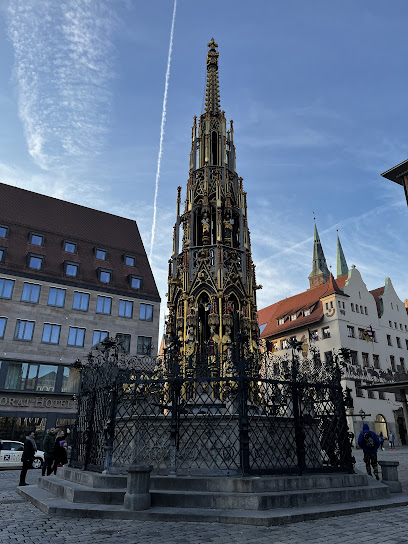
Narrenschiffbrunnen
Explore the captivating Narrenschiffbrunnen in Nuremberg, a vibrant symbol of art and history that enchants visitors with its intricate details.
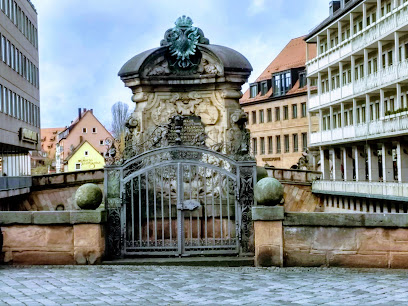
Nicolaus Copernicus Planetarium Nürnberg
Discover the cosmos at Nicolaus Copernicus Planetarium Nürnberg, where astronomy comes alive through captivating shows and interactive exhibits for all ages.
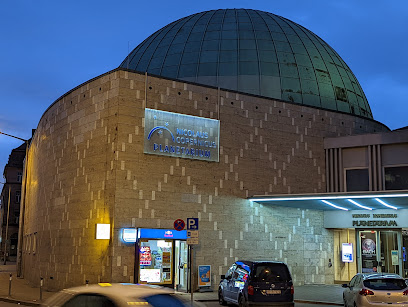
Jamnitzerplatz
Explore the serene beauty of Jamnitzerplatz, a picturesque park in Nuremberg, perfect for relaxation and cultural experiences.
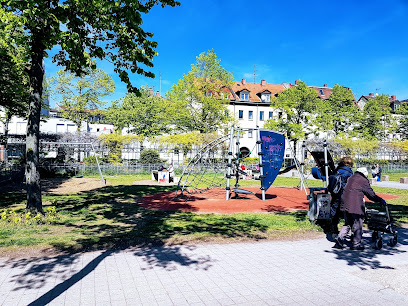
Spittlertorturm
Explore the historical charm of Spittlertorturm, a medieval tower that embodies Nuremberg's rich heritage and architectural beauty.
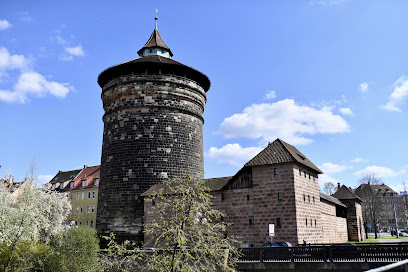
Neutorturm
Explore Neutorturm, a historical landmark in Nuremberg, where medieval architecture meets captivating stories from the past.
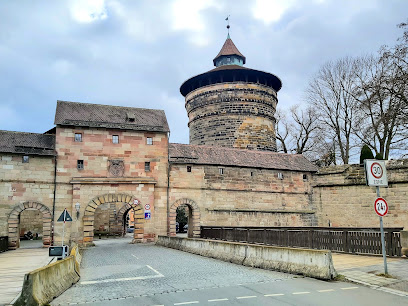
Jamnitzerplatz Parkanlage
Explore the serene beauty of Jamnitzerplatz Parkanlage in Nuremberg, a perfect retreat for relaxation, picnics, and nature walks in the heart of the city.
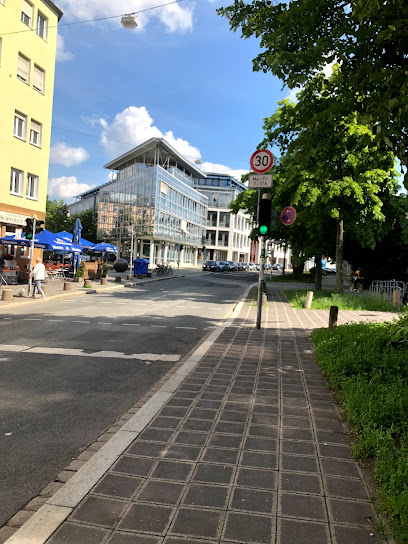
Ludwig-Eisenbahn-Denkmal
Explore the Ludwig-Eisenbahn-Denkmal, Nuremberg's iconic monument celebrating the railway's transformative role in history amidst serene greenery.
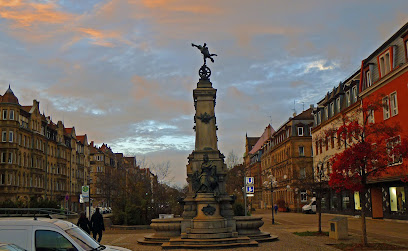
Minnesängerbrunnen
Immerse yourself in Nuremberg's cultural heritage at the stunning Minnesängerbrunnen, a captivating fountain honoring medieval minstrels.
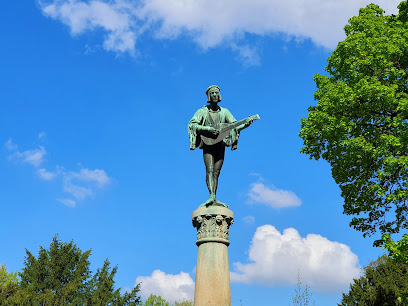
Dancing Couple Statue
Explore the captivating Dancing Couple Statue in Nuremberg, a romantic symbol of love and artistry in the heart of the city.
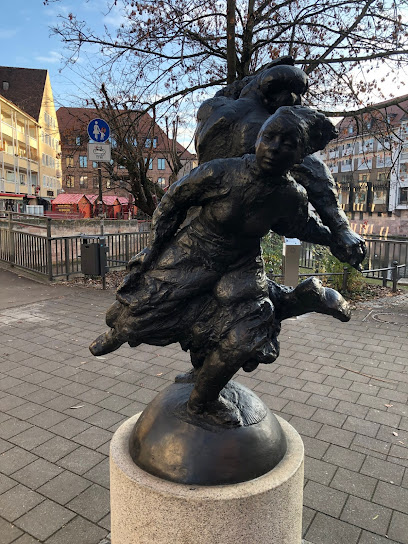
Vergessene Kunstwerke
Uncover the beauty of forgotten art at Vergessene Kunstwerke, a serene tourist attraction in Nuremberg rich in cultural heritage and hidden treasures.
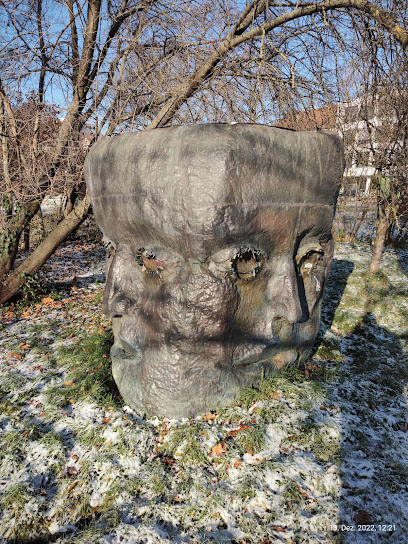
Historischer Militärfriedhof
Explore Nuremberg’s Historical Military Cemetery, a solemn site of remembrance and reflection, offering insights into the city’s military heritage.
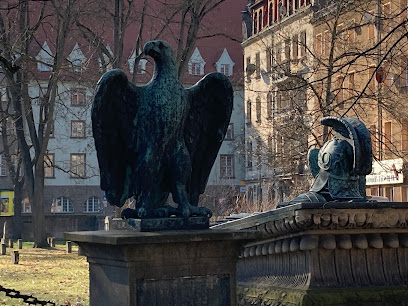
Unmissable attractions to see
Schöner Brunnen
Experience the enchanting Schöner Brunnen in Nuremberg, a historical fountain that embodies the city's rich medieval heritage and vibrant culture.
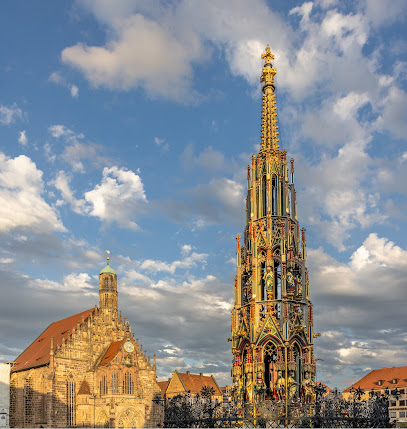
Ludwig-Eisenbahn-Denkmal
Explore the Ludwig-Eisenbahn-Denkmal, a significant historical landmark in Nuremberg that celebrates the legacy of Germany's railway system.
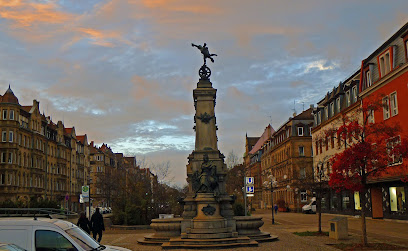
Minnesängerbrunnen
Experience the rich history and artistic beauty of Minnesängerbrunnen in the heart of Nuremberg, a tribute to the legendary medieval minstrels.
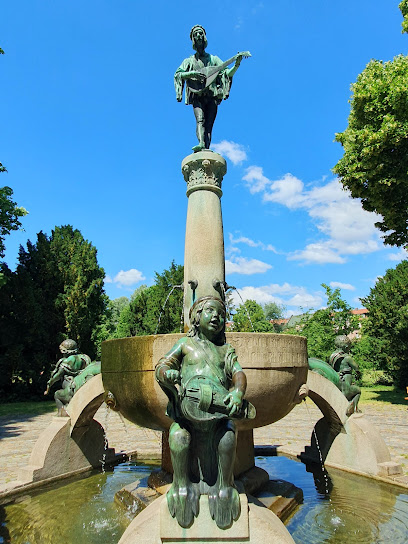
Essential places to dine
Alte Küch'n & Im Keller
Experience authentic German and Franconian cuisine at Alte Küch'n & Im Keller in Nuremberg – where tradition meets flavor.
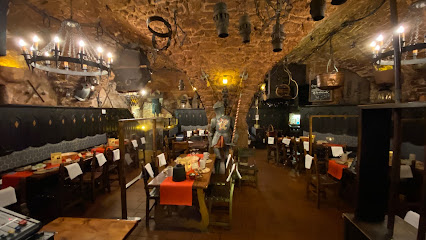
Cesme Restaurant
Discover authentic Turkish flavors at Cesme Restaurant in Nuremberg – where tradition meets taste in every dish.
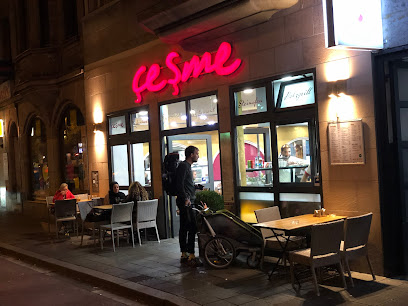
La Fabbrica
Experience authentic Italian cuisine at La Fabbrica in Nuremberg – where delicious pizzas meet warm hospitality in a cozy setting.
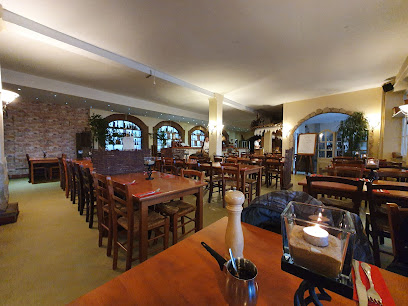
Regenzeit
Experience authentic Thai cuisine at Regenzeit, where flavorful dishes meet a cozy atmosphere in the heart of Nuremberg.
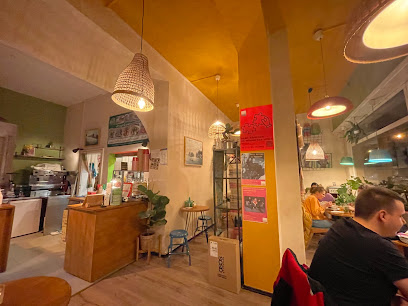
La Locanda
Discover authentic Italian flavors at La Locanda in Nuremberg - where every meal is a celebration of culinary tradition.
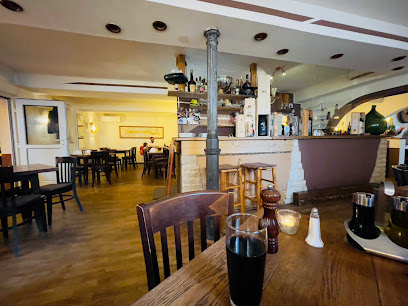
Cigköftem Nürnberg Plärrer
Experience authentic Turkish vegetarian and vegan cuisine at Cigköftem Nürnberg Plärrer - where every bite is packed with flavor.
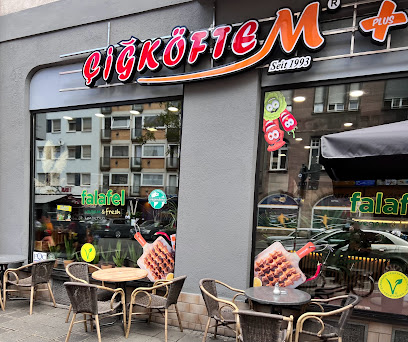
Palmengarten
Discover Palmengarten in Nuremberg - A charming restaurant nestled in nature offering delicious local cuisine and a tranquil atmosphere.
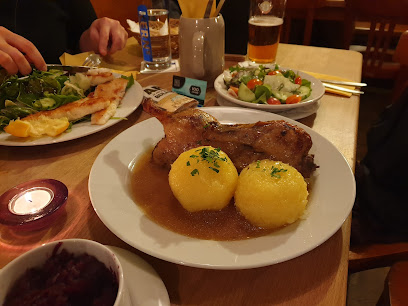
ess.brand
Explore ess.brand in Nuremberg - A Culinary Haven Blending Catering Excellence with Deli Delights and Restaurant Charm.
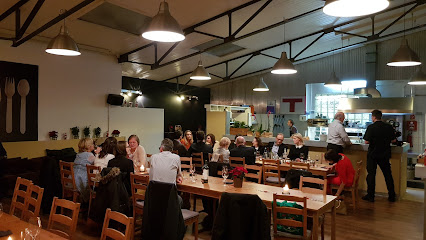
Veles
Discover exquisite modern European cuisine at Veles in Nuremberg—a fine dining experience that delights your palate.
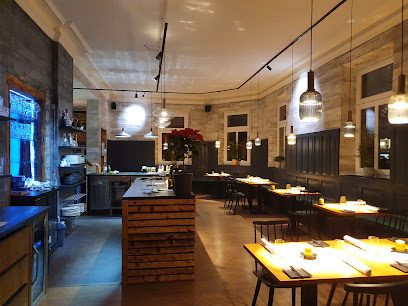
Artin Lounge Restaurant Nürnberg
Discover the exquisite culinary delights at Artin Lounge Restaurant Nürnberg, where local flavors meet international cuisine in a vibrant setting.
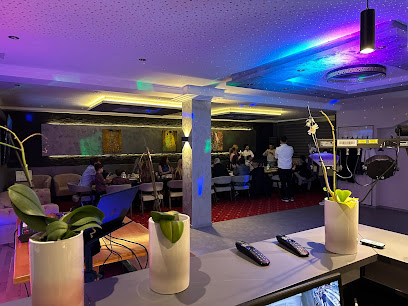
Markets, malls and hidden boutiques
FACH MARIE - THE LUCK BOUTIQUE
Explore FACH MARIE - The Luck Boutique in Nuremberg for an exclusive shopping experience featuring unique fashion and personalized service.
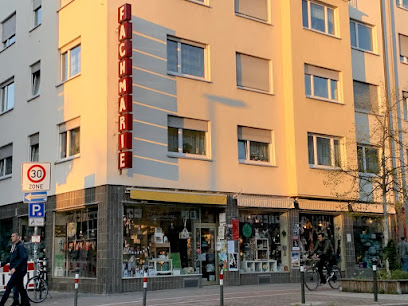
Laden 14,80
Explore Nuremberg's vibrant music scene at Laden 14,80, a cozy record store brimming with vinyl treasures and passionate staff.
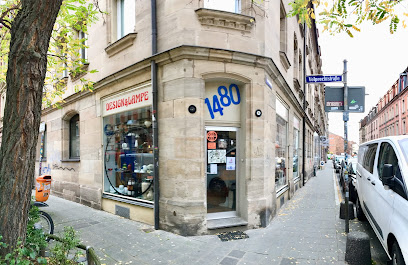
NKD
Explore NKD in Nuremberg for stylish and affordable clothing for the whole family, with options for kids, men, and women.
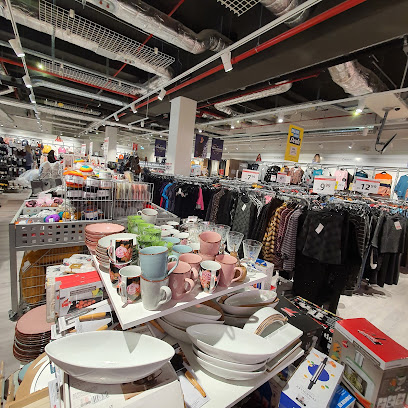
Saltmill Vintage
Explore the charm of vintage fashion at Saltmill Vintage in Nuremberg, where timeless treasures await every fashion lover.
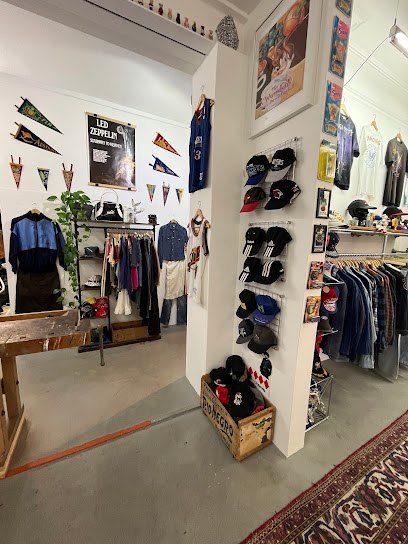
Yilmazlar Kauf Textil- und Geschenkartikel
Explore Yilmazlar Kauf, Nuremberg's charming gift shop for unique textiles and handcrafted souvenirs that capture the essence of the region.
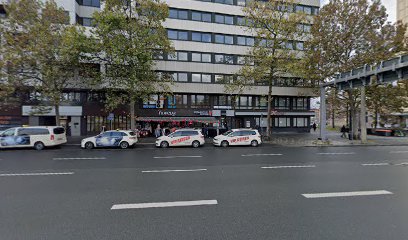
TAKKO FASHION Nürnberg
Discover stylish and affordable clothing for the whole family at Takko Fashion in Nuremberg's vibrant Plärrermarkt district.
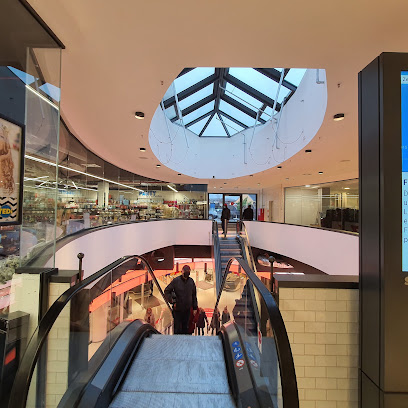
Selma Öz Butik
Explore Selma Öz Butik in Nuremberg for unique women's fashion, where style meets personalized service in a charming boutique atmosphere.
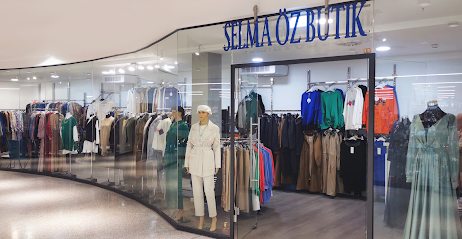
Flora
Explore Flora: A unique store in Nuremberg showcasing local crafts and products, perfect for souvenirs and gifts that capture the essence of the city.
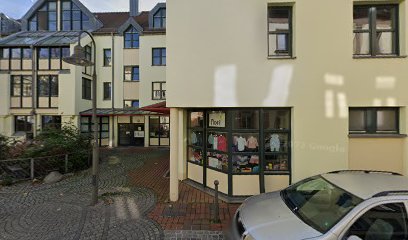
bili couture
Explore Bili Couture in Nuremberg for trendy women's clothing that blends elegance with modern flair, perfect for fashion-forward visitors.
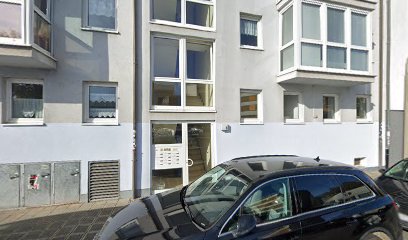
Ammerzoo
Discover Nuremberg's unique style at Ammerzoo, where modern fashion meets local flair in a chic clothing store.
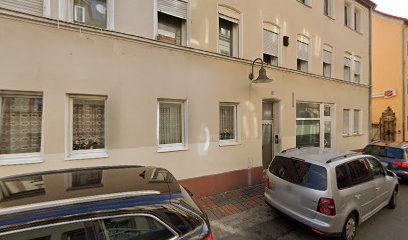
Essential bars & hidden hideouts
Cafe Bar Markiz
Discover the vibrant atmosphere of Cafe Bar Markiz in Nuremberg, where delightful drinks and a cozy ambiance await you.
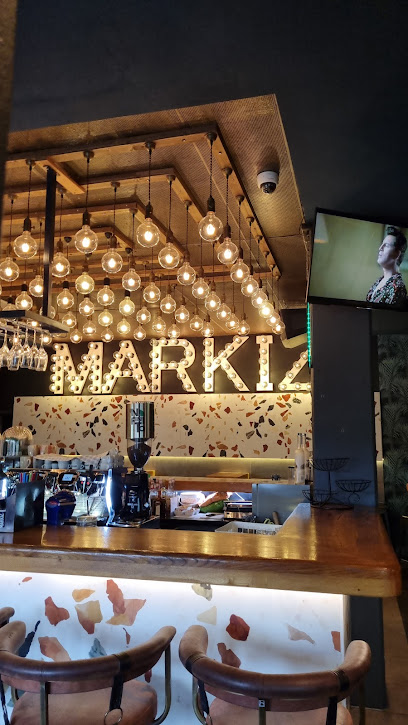
Das Willich
Experience the vibrant atmosphere and local flavors at Das Willich, a must-visit bar and restaurant in the heart of Nuremberg.
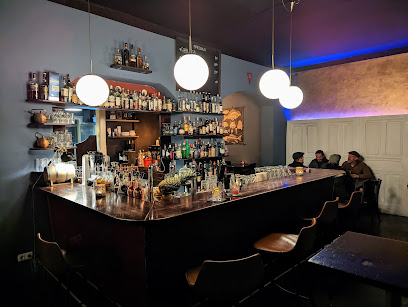
Mops von Gostenhof
Experience authentic German hospitality at Mops von Gostenhof, a cozy pub in Nuremberg serving local beers and hearty snacks.
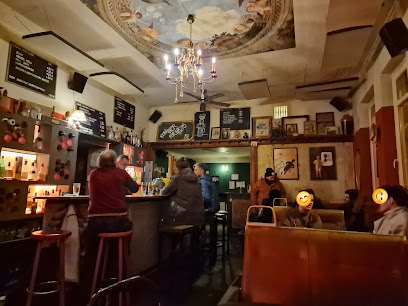
achtzehn97
Explore the heart of Nuremberg at achtzehn97, a wine bar that offers exquisite selections and a cozy ambiance perfect for any occasion.
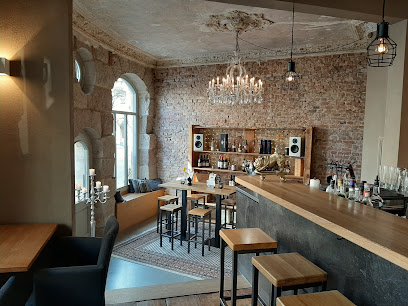
Exile Cafe & Cocktail Bar
Experience Nuremberg's vibrant nightlife at Exile Cafe & Cocktail Bar, where expertly crafted cocktails and a stylish ambiance await you.
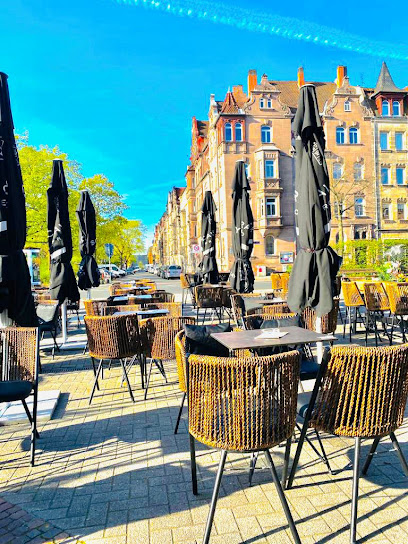
Santé Cafe Bar
Discover the perfect blend of coffee and cocktails at Santé Cafe Bar in Nuremberg, a cozy retreat for relaxation and local culture.
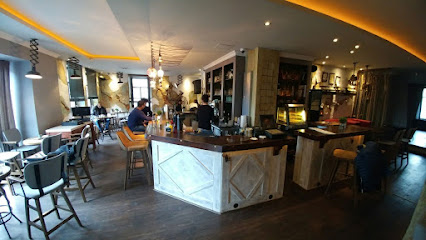
Schräges Eck
Experience the heart of Nuremberg at Schräges Eck, the cozy pub perfect for enjoying local flavors and vibrant atmosphere.
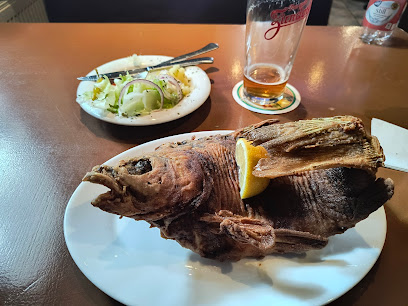
Nordkurve — Bar/Ausstellung/Events
Experience Nuremberg's art scene at Nordkurve, where vibrant drinks meet captivating exhibitions in a lively social setting.
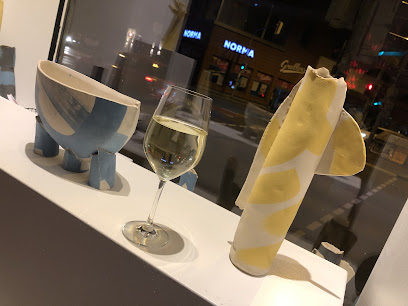
Pilsstube Gostenhof
Discover the welcoming charm of Pilsstube Gostenhof, a top-notch bar in Nuremberg offering a variety of local brews and a vibrant atmosphere.
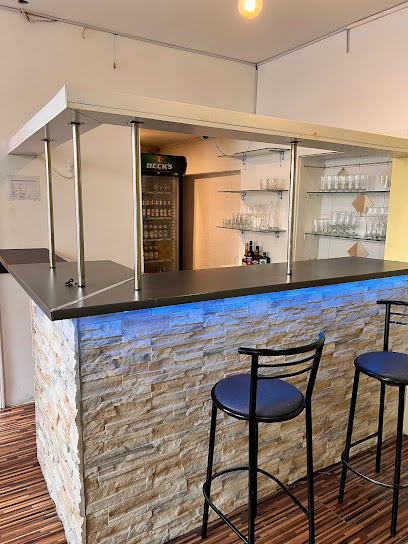
Zilan Bar & Cafe
Experience the vibrant nightlife of Nuremberg at Zilan Bar & Cafe, a perfect blend of eclectic decor and inviting ambiance for a memorable evening.
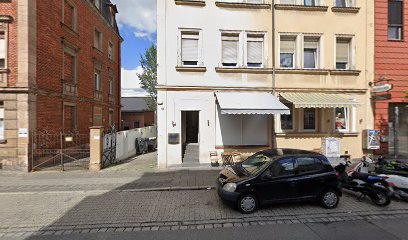
Local Phrases
-
- HelloHallo
[ha-lo] - GoodbyeAuf Wiedersehen
[owf vee-der-zay-en] - YesJa
[yah] - NoNein
[nine] - Please/You're welcomeBitte
[bih-teh] - Thank youDanke
[dahn-keh] - Excuse me/SorryEntschuldigung
[ent-shool-di-gung] - How are you?Wie geht es dir?
[vee geht es deer] - Fine. And you?Gut. Und du?
[goot oont doo] - Do you speak English?Sprichst du Englisch?
[shprikhst doo eng-lish] - I don't understandIch verstehe nicht
[ikh fer-shteh-eh nikht]
- HelloHallo
-
- I'd like to see the menu, pleaseIch hätte gerne die Speisekarte, bitte
[ikh het-eh gehr-neh dee shpahy-zeh-kahr-teh, bih-teh] - I don't eat meatIch esse kein Fleisch
[ikh es-seh kine flysh] - Cheers!Prost!
[prohst] - I would like to pay, pleaseIch möchte bitte bezahlen
[ikh merkh-teh bih-teh beh-tsah-len]
- I'd like to see the menu, pleaseIch hätte gerne die Speisekarte, bitte
-
- Help!Hilfe!
[hil-feh] - Go away!Geh weg!
[geh vekh] - Call the Police!Rufen Sie die Polizei!
[roo-fen zee dee poh-lee-tsai] - Call a doctor!Rufen Sie einen Arzt!
[roo-fen zee i-nen artst] - I'm lostIch habe mich verirrt
[ikh hah-beh meesh feh-rirt] - I'm illIch bin krank
[ikh been krank]
- Help!Hilfe!
-
- I'd like to buy...Ich würde gerne kaufen...
[ikh vur-deh gehr-neh kow-fen] - I'm just lookingIch schaue nur
[ikh show-eh noor] - How much is it?Wie viel kostet es?
[vee feel kohs-tet es] - That's too expensiveDas ist zu teuer
[dahs ist tsoo toy-er] - Can you lower the price?Können Sie den Preis senken?
[kew-nen zee den preis zehn-ken]
- I'd like to buy...Ich würde gerne kaufen...
-
- What time is it?Wie spät ist es?
[vee shpet ist es] - It's one o'clockEs ist ein Uhr
[es ist iyn oor] - Half past (10)Halb (10)
[halb (tsen)] - MorningMorgen
[mohr-ghen] - AfternoonNachmittag
[nahkh-mit-tahk] - EveningAbend
[ah-bend] - YesterdayGestern
[geh-shtern] - TodayHeute
[hoy-teh] - TomorrowMorgen
[mohr-ghen] - 1Eins
[ayns] - 2Zwei
[tsvay] - 3Drei
[dry] - 4Vier
[feer] - 5Fünf
[fuhnf] - 6Sechs
[zeks] - 7Sieben
[zee-ben] - 8Acht
[ahkt] - 9Neun
[noyn] - 10Zehn
[tsen]
- What time is it?Wie spät ist es?
-
- Where's a/the...?Wo ist ein/der...?
[vo ist iyn/dehr] - What's the address?Was ist die Adresse?
[vas ist dee ah-dreh-suh] - Can you show me (on the map)?Können Sie es mir zeigen (auf der Karte)?
[kew-nen zee es meer tsie-gen (ouf dehr kahr-teh)] - When's the next (bus)?Wann kommt der nächste (Bus)?
[vahn kohmt dehr naykhs-teh (boos)] - A ticket (to ....)Eine Fahrkarte (nach ...)
[i-ne fahr-kahr-teh (nakh ...)]
- Where's a/the...?Wo ist ein/der...?
History of Gostenhof
-
Gostenhof's history can be traced back to the 14th century when it was primarily an area of settlement for craftsmen and weavers. The name itself is derived from the German term 'Gosten,' which means 'guest,' reflecting the neighborhood's role as a hub for tradespeople. This vibrant community contributed significantly to Nuremberg's reputation as a center of textile production and commerce.
-
In the late Middle Ages, Gostenhof was incorporated into the growing urban fabric of Nuremberg. Due to its strategic location near the city walls, it became a melting pot of cultures as merchants and artisans settled here, enhancing the neighborhood’s diversity and economic vibrancy. This integration played a crucial role in the overall urban development of Nuremberg.
-
The Protestant Reformation in the 16th century had a profound effect on Gostenhof, as it did throughout Nuremberg. Many residents adopted Lutheranism, which led to changes in the local church's influence and community practices. The neighborhood saw an increase in religious debates and gatherings, reflecting the broader societal shifts occurring in Nuremberg at the time.
-
The 19th century marked a period of rapid industrialization in Nuremberg, and Gostenhof was no exception. The establishment of factories and workshops transformed the area into a bustling industrial hub. This influx of workers from rural areas led to significant population growth and the development of new housing, which shaped Gostenhof’s architectural landscape.
-
In recent decades, Gostenhof has undergone a cultural revival, with artists, musicians, and young professionals moving into the area. This trend has led to a reimagining of public spaces and community initiatives, fostering a vibrant arts scene and enhancing the neighborhood's reputation as a creative quarter of Nuremberg. The area's historical charm, combined with modern influences, creates a unique cultural tapestry reflective of Nuremberg's broader evolution.
Gostenhof Essentials
-
Gostenhof is easily accessible from various parts of Nuremberg. If you're arriving from the main train station (Nürnberg Hauptbahnhof), take the U-Bahn (subway) line U2 towards Röthenbach and get off at the Gostenhof station. Alternatively, several bus lines connect Gostenhof with other neighborhoods, including the 36 and 37 buses. For those traveling from the airport, take the U2 from the airport to the main station and then switch to the U2 towards Röthenbach.
-
Gostenhof is best explored on foot, as many attractions, cafes, and shops are within walking distance. The area is also well-served by public transport, including trams and buses. Biking is a popular option; rental bikes are available throughout the city, and Gostenhof has several bike lanes. The Nuremberg public transport system (VGN) offers convenient connections to the rest of the city.
-
Gostenhof is generally a safe neighborhood for tourists, but like any urban area, it's wise to stay alert. Avoid poorly lit areas at night and be cautious of your belongings, especially in crowded places. While there are no specific high-crime areas targeting tourists, it’s best to exercise standard safety precautions and avoid displaying valuables in public.
-
In case of emergency, dial 112 for fire and medical assistance or 110 for police. The nearest hospital is Klinikum Nürnberg, which is equipped to handle various medical emergencies. It is advisable to have travel insurance that covers medical expenses. Pharmacies are available throughout Gostenhof for over-the-counter medications.
-
Fashion: Do dress comfortably and casually, as Gostenhof has a laid-back vibe; however, avoid overly revealing attire in religious contexts. Religion: Do respect local customs, especially when visiting churches or cultural sites. Public Transport: Do be considerate of other passengers and offer your seat to those in need. Don’t consume food or drinks on public transport. Greetings: Do greet locals with a friendly 'Hallo' or 'Guten Tag.' Eating & Drinking: Do try local dishes at neighborhood eateries and don’t refuse offers of food, as it is considered polite.
-
To experience Gostenhof like a local, visit the local markets, especially the Gostenhof Wochenmarkt, held weekly, where you can find fresh produce and local delicacies. Engage with local artists and shop owners, as many are happy to share stories about their crafts. Don’t miss the vibrant street art scene; take a stroll to view the murals adorning many buildings. For a unique experience, check out local events at the Kulturzentrum Gostenhof, which often hosts concerts, exhibitions, and community gatherings.
Trending Landmarks in Gostenhof
-
Imperial Castle of Nuremberg
-
Handwerkerhof Nuremberg
-
Memorium Nuremberg Trials
-
Ehekarussell
-
Narrenschiffbrunnen
-
Nicolaus Copernicus Planetarium Nürnberg
-
Jamnitzerplatz
-
Spittlertorturm
-
Neutorturm
-
Jamnitzerplatz Parkanlage
-
Ludwig-Eisenbahn-Denkmal
-
Minnesängerbrunnen
-
Dancing Couple Statue
-
Vergessene Kunstwerke
-
Historischer Militärfriedhof
Nearby Cities to Gostenhof
-
Things To Do in Rothenburg ob der Tauber
-
Things To Do in Wurzburg
-
Things To Do in Munich
-
Things To Do in Stuttgart
-
Things To Do in Karlovy Vary
-
Things To Do in Plzeň
-
Things To Do in Erfurt
-
Things To Do in Heidelberg
-
Things To Do in Frankfurt
-
Things To Do in Leipzig
-
Things To Do in Salzburg
-
Things To Do in Bregenz
-
Things To Do in Kitzbühel
-
Things To Do in Innsbruck
-
Things To Do in Dornbirn







